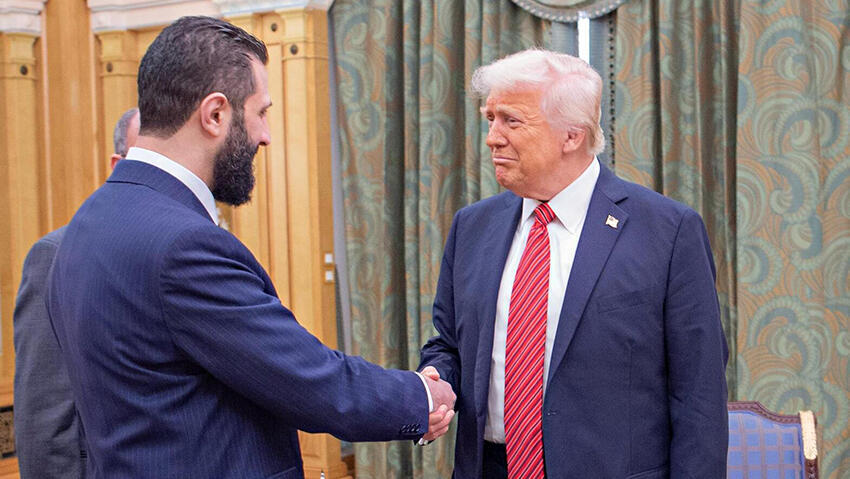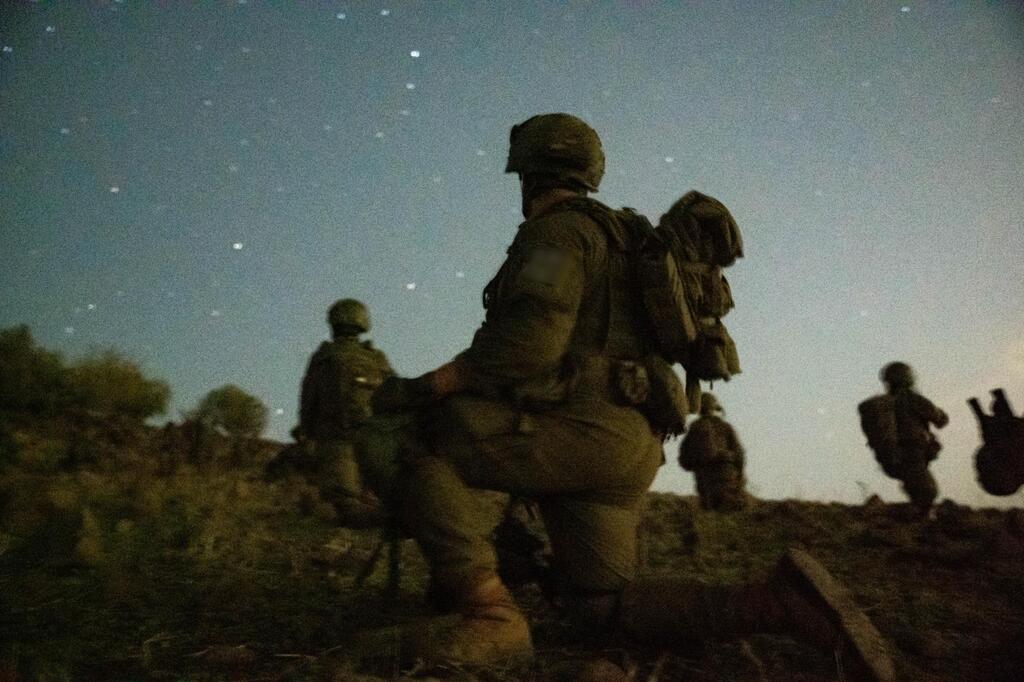Veterans of the American intelligence community likely rubbed their eyes in disbelief as they watched a former jihadist terrorist arrive in a suit to meet with U.S. President Donald Trump. Ahmad al-Sharaa, once designated a global terrorist known by his nom de guerre Abu Mohammed al-Golani, had been on the run for decades with a $10 million bounty on his head as the leader of Jabhat al-Nusra, an al-Qaeda affiliate.
Following the fall of the Assad regime, al-Sharaa appears to be undergoing a process of "rehabilitation." With Turkish President Recep Tayyip Erdogan acting as a mediator, he has begun courting the West, culminating in a meeting with Trump during the president’s first trip to the Middle East in his current term. Still, not all is rosy. Just Tuesday, U.S. Secretary of State Marco Rubio warned that the interim government faces the risk of collapse and that Syria could descend into a new civil war.
Dr. Carmit Valensi, senior researcher and head of the Syria program at the Institute for National Security Studies, discussed al-Sharaa’s background and his dramatic shift in ideology over the past two decades.
She explored whether his break from terrorist groups is a recent move or part of a longer, more credible process, the current economic and social state of Syria, the implications of the sanctions relief announced by Trump and how Israel should navigate this new reality to safeguard its security interests — and potentially lay the groundwork for future normalization.
'Syria is a shattered state — rebuilding could take 50 years'
“Ahmad al-Sharaa was actually born in Saudi Arabia and moved to Syria at a young age. His family is originally from Syria, and some claim his father was born in the Golan Heights — hence the name al-Golani,” explains Dr. Valensi.
“He didn’t start out as a jihadist or Islamist. That came later, largely in response to the 2003 U.S. invasion of Iraq. He initially joined al-Qaeda and later ISIS, but quickly realized it wasn’t for him and broke away completely by 2016. So what we’re seeing now — what some are calling a process of moderation or pragmatism — isn’t new. This isn’t a jihadist taking off his uniform and putting on a suit. It’s a long-term shift away from jihadist ideology.”
On the lifting of economic sanctions on Syria, Valensi says: “The civil war has had a devastating impact on Syria’s economy. More than half the country’s basic infrastructure has been destroyed. Unemployment is extremely high, with over 90% of the population living below the poverty line. There are severe shortages of basic goods. Even in Damascus, the capital, there are only a few hours of electricity each day because of serious energy shortages. Prices are sky-high and the Syrian pound is at a historic low.
“So the lifting of sanctions — something al-Sharaa and his circle pushed for from the start — is a key opportunity for economic change. These sanctions had effectively blocked all foreign investment. Now we’re already hearing about plans to rebuild infrastructure and ease financial transfers through banks, as well as a return of some international companies. Experts estimate that rebuilding Syria could take 50 years and cost between $250 billion and $3 trillion. It’s going to take time. Gulf states like Qatar, Saudi Arabia, the UAE — and especially Turkey, which is arguably the most influential player in Syria today — are expected to play a major role in this reconstruction.”
Regarding how Israel should respond, Valensi notes: “Israel has taken a very militant stance. But we must understand that the longer Israel maintains a military presence in Syria, the more anti-Israel sentiment will build. Israel wasn’t a focus of the new regime, but we’re slowly becoming one. We’re also seeing a shift in Israeli policy, with early signs of dialogue — which is a positive development, because military action alone isn’t sustainable. We risk creating a self-fulfilling prophecy: we’re there militarily to prevent threats, but those threats may no longer be present. The more aggressive we appear, the more we risk inciting opposition.
“There needs to be a better balance between military action and diplomatic engagement — maintaining a healthy degree of caution, but doing so in a calibrated way. This is the moment to act, while the Syrian regime remains relatively weak. There’s still leverage to secure Israeli security interests — and potentially, in the long run, even normalization. But that will take time.”




